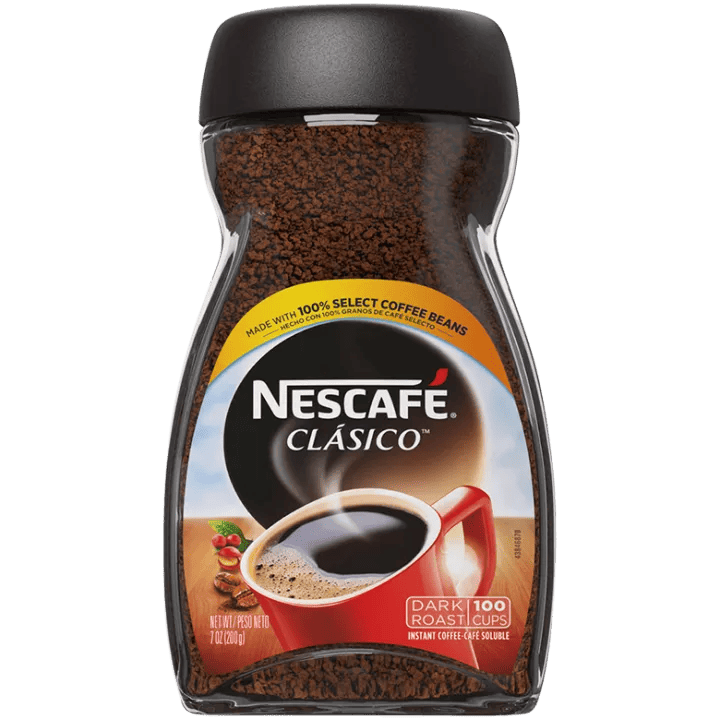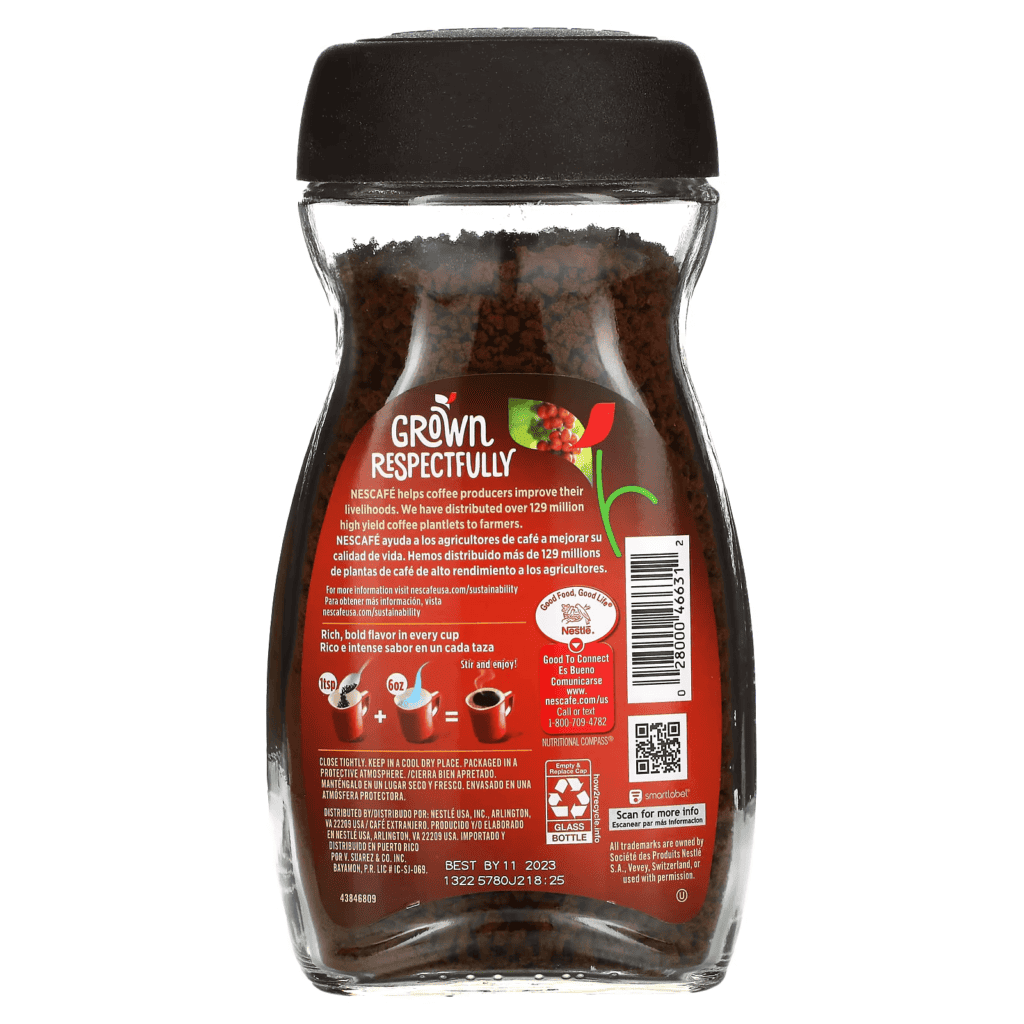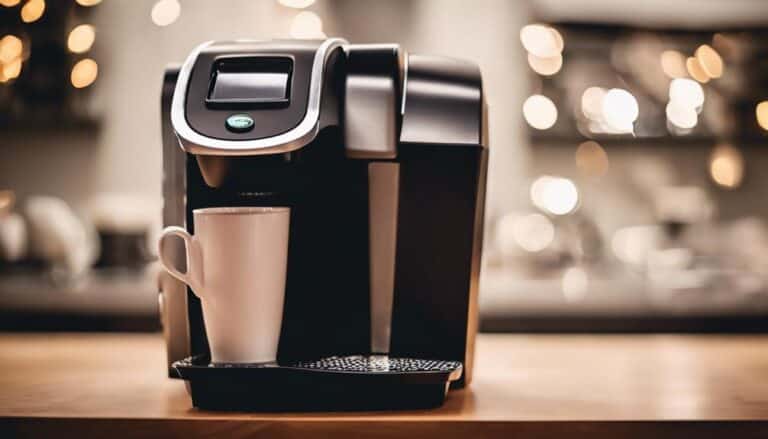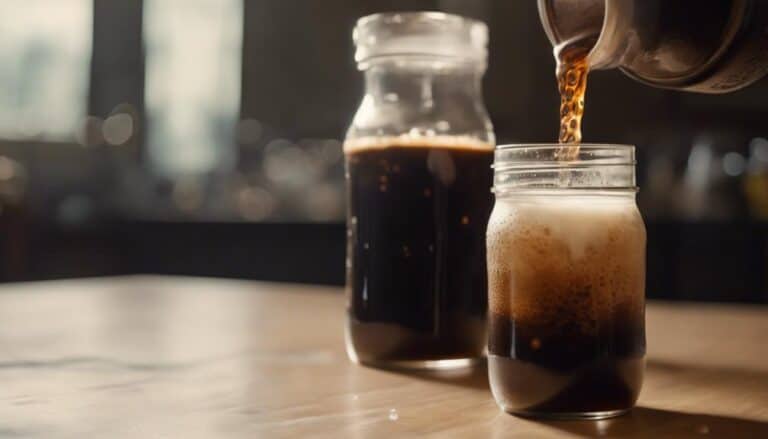How Much Caffeine is in 1 Teaspoon of Nescafe Instant Coffee: A Clear and Knowledgeable Answer

We all have our favorite go-to coffee brands and types, but have you ever wondered how much caffeine is in your instant coffee? Specifically, how much caffeine is in one teaspoon of Nescafe instant coffee? Nescafe is a popular brand of instant coffee that is enjoyed by many coffee lovers around the world. In this article, we will explore the caffeine content in one teaspoon of Nescafe instant coffee.
According to various sources, including Nescafe’s official website, one teaspoon of Nescafe instant coffee contains approximately 30-35mg of caffeine. However, it’s important to note that the caffeine content can vary depending on factors such as the type of coffee, brewing process, and coffee origin. For example, Nescafe Classic has around 2g of caffeine per serving, while the caffeine level in Nescafe 3-in-1 Instant varies.
Understanding the caffeine content in Nescafe instant coffee can be helpful for those who are sensitive to caffeine or trying to limit their caffeine intake. It can also be useful for those who want to ensure they are getting enough caffeine to boost their energy levels. In the following sections, we will take a closer look at the factors that influence caffeine content in Nescafe instant coffee and explore the different varieties of Nescafe instant coffee available in the market.
Understanding Caffeine
Caffeine is a naturally occurring stimulant that is found in many common foods and drinks, including coffee, tea, chocolate, and soft drinks. It is a central nervous system stimulant that can help to improve alertness and concentration, and it is often used to combat fatigue and drowsiness.
The amount of caffeine in a cup of coffee can vary widely depending on a number of factors, including the type of coffee bean, the brewing method, and the serving size. For example, a standard 8-ounce cup of brewed coffee can contain anywhere from 95 to 200 milligrams of caffeine, while a single shot of espresso typically contains around 63 milligrams.
When it comes to instant coffee, the caffeine content can also vary depending on the brand and the serving size. According to the manufacturer’s information, a tablespoon of Nescafe instant coffee can contain up to 60mg to 80mg of caffeine. However, it is important to note that the actual amount of caffeine in a teaspoon of Nescafe instant coffee may vary depending on the specific product.
If you are sensitive to caffeine or are concerned about the amount of caffeine that you are consuming, it is important to be aware of the caffeine content in your favorite foods and drinks. While moderate caffeine consumption is generally considered safe for most people, excessive caffeine intake can lead to a number of negative side effects, including anxiety, restlessness, and insomnia.
Caffeine in Nescafe Instant Coffee
We all know that caffeine is a stimulant that can help us stay alert and focused. But how much caffeine is in a teaspoon of Nescafe instant coffee? Let’s take a closer look.
According to information provided by Nescafe, a teaspoon of their classic instant coffee contains between 20mg to 27mg of caffeine. However, the actual caffeine content can vary depending on several factors, including the type of coffee, brewing process, and coffee origin.
It’s important to note that the caffeine content listed on the packaging is only an estimate, and the actual amount of caffeine in your cup of coffee may be higher or lower than what is listed. Factors such as the amount of water used, brewing time, and personal sensitivity to caffeine can all affect the final caffeine content of your coffee.
If you’re looking for a stronger caffeine boost, Nescafe also offers a 3-in-1 instant coffee that contains varying levels of caffeine. The caffeine content of this product can range from approximately 35mg to 45mg per serving, depending on the specific variety.
It’s worth noting that while caffeine can have some benefits, such as increased alertness and improved cognitive function, it can also have negative effects if consumed in excess. It’s generally recommended that adults consume no more than 400mg of caffeine per day, which is roughly equivalent to four cups of coffee.
Overall, if you’re looking for a quick and easy caffeine boost, Nescafe instant coffee can be a convenient and affordable option. Just be sure to consume it in moderation and pay attention to your personal caffeine tolerance and sensitivity.

How to Measure Caffeine Content
Measuring the caffeine content in 1 teaspoon of Nescafe instant coffee can be a little tricky. However, with the right tools and techniques, you can get a fairly accurate estimate of the caffeine content.
The first step is to understand that the caffeine content in coffee can vary depending on several factors, such as the type of coffee, the roasting process, and the brewing method. Instant coffee, in particular, tends to have a higher caffeine content than regular brewed coffee.
To measure the caffeine content in 1 teaspoon of Nescafe instant coffee, you will need a few items:
- A digital scale
- A graduated cylinder or a volumetric flask
- A coffee filter
- A pH meter
- A caffeine standard solution
Once you have gathered all the necessary items, follow these steps:
- Weigh out 1 gram of Nescafe instant coffee using the digital scale.
- Dissolve the coffee in 100 ml of distilled water in a graduated cylinder or a volumetric flask.
- Filter the solution using a coffee filter to remove any impurities.
- Measure the pH of the solution using a pH meter.
- Prepare a caffeine standard solution with a known concentration.
- Measure the absorbance of the caffeine standard solution and the coffee solution using a spectrophotometer.
- Calculate the caffeine content in the coffee solution using the Beer-Lambert law.
It is worth noting that this method is not 100% accurate, and there may be some variation in the caffeine content depending on the quality of the coffee and the accuracy of the measurements. However, it is a good starting point and can give you a rough idea of the caffeine content in 1 teaspoon of Nescafe instant coffee.
In conclusion, measuring the caffeine content in 1 teaspoon of Nescafe instant coffee can be a challenging task, but with the right tools and techniques, it is possible to get a fairly accurate estimate. By following the steps outlined above, you can get a rough idea of the caffeine content and make an informed decision about your coffee consumption.
Factors Influencing Caffeine Content
When it comes to caffeine content, there are several factors that can influence how much caffeine is in a cup of coffee. Here are some of the key factors that can affect caffeine levels:
Type of Coffee Bean
The type of coffee bean used can have a significant impact on the caffeine content of a cup of coffee. Arabica beans, which are generally considered to be of higher quality, contain less caffeine than Robusta beans. This is because Arabica beans grow at higher altitudes and take longer to mature, resulting in a denser, richer flavor but less caffeine content.
Roasting Process
The roasting process can also affect the caffeine content of coffee. Contrary to popular belief, darker roasts do not necessarily contain more caffeine than lighter roasts. In fact, the longer a coffee bean is roasted, the more caffeine is burned off. So, a light roast coffee may actually contain more caffeine than a dark roast coffee.
Brewing Method
The brewing method used can also have an impact on caffeine content. Espresso, for example, is generally considered to be more concentrated and contains more caffeine per ounce than drip coffee. However, the total amount of caffeine in a cup of coffee will depend on the strength of the brew, which can vary depending on the brewing method.
Serving Size
Finally, serving size is an important factor to consider when it comes to caffeine content. A standard 8-ounce cup of coffee contains around 95 milligrams of caffeine, but this can vary depending on the factors listed above. A single teaspoon of Nescafe instant coffee contains around 32 milligrams of caffeine, so if you’re looking to limit your caffeine intake, it’s important to pay attention to serving sizes and how much caffeine is in each serving.
Overall, there are several factors that can influence the caffeine content of a cup of coffee. By understanding these factors, you can make informed choices about your coffee consumption and ensure that you’re getting the right amount of caffeine for your needs.
Comparing Caffeine Content to Other Beverages
When it comes to caffeine content, Nescafe instant coffee is a popular choice for many coffee drinkers. However, how does it compare to other popular beverages? Let’s take a look.
According to Mayo Clinic, a single teaspoon of Nescafe instant coffee contains around 31 mg of caffeine. This is significantly less than a standard 8 oz cup of brewed coffee, which contains around 95 mg of caffeine. However, it is important to note that caffeine content can vary depending on the type and brand of coffee.
Tea is another popular beverage that contains caffeine. Healthline reports that a standard 8 oz cup of black tea contains around 47 mg of caffeine, while green tea contains around 29 mg of caffeine. Herbal teas, on the other hand, are typically caffeine-free.
Sodas and energy drinks are also known for their caffeine content. The Spruce Eats provides a helpful guide outlining the caffeine content of various sodas and energy drinks. For example, a 12 oz can of Coca-Cola contains around 34 mg of caffeine, while a 16 oz can of Monster Energy contains around 160 mg of caffeine.
It’s important to remember that caffeine sensitivity can vary from person to person. Some individuals may be able to consume large amounts of caffeine without any adverse effects, while others may experience negative side effects with even small amounts of caffeine. It’s always a good idea to monitor your caffeine intake and consult with a healthcare professional if you have any concerns.
Health Implications of Caffeine Intake
Caffeine is a widely consumed stimulant found in various beverages and foods, including coffee, tea, chocolate, and some medications. While moderate caffeine intake is generally considered safe for most healthy adults, excessive caffeine consumption can lead to adverse health effects.
According to the Mayo Clinic, up to 400 milligrams (mg) of caffeine per day appears to be safe for most healthy adults. However, the actual caffeine content in beverages and foods can vary widely. For instance, one teaspoon of Nescafe instant coffee contains approximately 31 milligrams of caffeine, while a 12-ounce can of cola can contain up to 50 milligrams of caffeine.
Consuming too much caffeine can lead to a range of health problems, including:
- Insomnia
- Nervousness
- Restlessness
- Irritability
- Upset stomach
- Fast heartbeat
- Muscle tremors
In addition, high caffeine intake can increase blood pressure, cause dehydration, and interfere with calcium absorption, which can weaken bones over time.
It is also worth noting that some people may be more sensitive to caffeine than others. Pregnant women, children, and individuals with certain medical conditions, such as anxiety disorders or heart problems, may be advised to limit their caffeine intake or avoid it altogether.
In summary, caffeine can provide a temporary energy boost and enhance alertness, but excessive caffeine intake can have negative health consequences. It is important to be aware of the caffeine content in foods and beverages and to consume caffeine in moderation to minimize the risk of adverse effects.
Caffeine Intake Recommendations
When it comes to caffeine intake, it’s important to understand how much is safe and how much can be harmful. According to Mayo Clinic, up to 400 milligrams of caffeine a day is considered safe for most adults. However, people’s sensitivity to caffeine varies, and some may experience negative side effects such as headaches, restlessness, or anxiety with lower doses.
For pregnant women, it is recommended to limit caffeine intake to 200 milligrams per day to reduce the risk of miscarriage and low birth weight. Breastfeeding women are also advised to limit their caffeine intake, as caffeine can pass through breast milk and affect the baby’s sleep patterns.
Children should avoid caffeine consumption as much as possible, as it can interfere with their sleep and cause restlessness and anxiety. The American Academy of Pediatrics recommends that children under 12 years of age should not consume caffeine, and adolescents should limit their intake to no more than 100 milligrams per day.
It’s important to note that caffeine is not only found in coffee, but also in other beverages and foods such as tea, soda, chocolate, and energy drinks. Be mindful of your total caffeine intake from all sources and adjust accordingly to stay within safe limits.
To summarize, the recommended caffeine intake for most adults is up to 400 milligrams per day. Pregnant and breastfeeding women should limit their intake to 200 milligrams per day, and children should avoid caffeine consumption as much as possible. Keep in mind that caffeine is found in various sources, so be mindful of your total intake.
Conclusion
In conclusion, the caffeine content in 1 teaspoon of Nescafe instant coffee varies between 20mg to 27mg. This amount is lower than the caffeine content in a tablespoon of Nescafe instant coffee, which ranges from 60mg to 80mg.
It is important to note that the caffeine content in Nescafe instant coffee can be influenced by various factors such as the type of coffee, brewing process, and coffee origin. Additionally, the caffeine level in Nescafe 3-in-1 Instant coffee can vary.
While Nescafe instant coffee can be a convenient and quick way to get a caffeine boost, it is important to consume it in moderation. Too much caffeine can cause various side effects such as anxiety, disrupted sleep, restlessness, upset stomach, tremors, and a fast heartbeat.
Overall, it is recommended that adults consume no more than 400 milligrams of caffeine per day, which is considered safe for most people. As always, it is important to listen to your body and consume caffeine in moderation to avoid any negative side effects.






One Comment